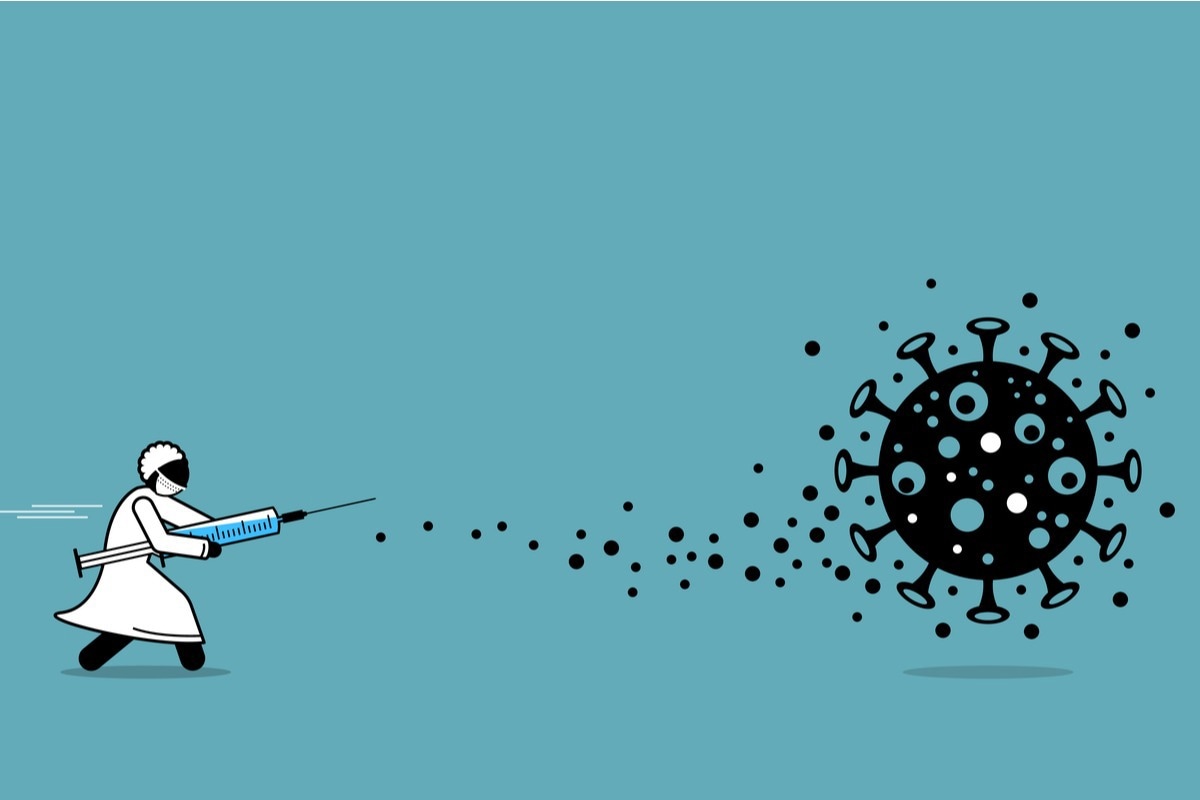Introduction
The concept of eradication
Challenges
References
Further reading
Eradicating a disease has proven challenging for a variety of reasons, not least of all it has been difficult to conceptualize and define what exactly eradication of disease really means.
This article considers some of the factors that currently pose a challenge to the notion of disease eradication with a focus on the issues of surveillance, prospects for prophylaxis, and the concept of the patient's right to choose.
 Image Credit: Leremy/Shutterstock
Image Credit: Leremy/Shutterstock
The concept of eradication
The eradication of disease has been deemed the “holy grail” for health officials (Corona, 2020). Since the 1950s there have been seven eradication programs to tackle: malaria, yellow fever, yaws, hookworm, smallpox, poliomyelitis, and dracunculiasis, amongst others. The efforts made to eradicate malaria, yellow fever, and yaws (which causes severe skin infection) were unsuccessful, though they fostered a better understanding of the complexities of disease control.
The Smallpox Eradication Program (SEP) was deemed highly successful. This outcome was achieved on account of the fact a vaccination program could be administered in a straightforward way. The Guinea worm and polio eradication programs followed on from the SEP, but these efforts were unfortunately met with varying success, though in the case of polio the disease is now present in only a few countries – a far cry from the figure of close to 50 nations when the disease was endemic.
The SEP formed the basis for the emergence of the concept of disease eradication in the 1980s. The now-famous Dahlem Workshop on the Eradication of Infectious Diseases convened in March 1997 in Germany to address questions about how to best define eradication (Dowdle, 1998; Quadros, 2002). At the meeting F. Fenner, A. J. Hall and W. R. Dowdle presented their seminal paper, “What is Eradication?” This question has proven problematic to conceptualize and define.
One way to define eradication that has been accepted by the WHO and various other organizations is the “permanent reduction to zero of the worldwide incidences of infection caused by a specific agent as a result of deliberate efforts” (Corona, 2020).
In 1993 the International Task Force for Disease Eradication assessed over 80 potential infectious disease categories of which they designated just six as eradicable candidates (Dowdle, 1998). The World Health Organisation (WHO) has since then declared only two viruses to have been officially eradicated thus far: variola virus (VARV) which causes smallpox and rinderpest virus (RPV) which causes rinderpest (also known as cattle plague).
So, what does it take to eradicate disease and why is the endeavor proving to be so challenging?
 Image Credit: Chinnapong/Shutterstock
Image Credit: Chinnapong/Shutterstock
Challenges
Many are doubtful a disease can be eradicated, and the question is: should it be? There are several factors to be considered in this debate, such as:
- The cost and reliability of eradication
- The ensuing effect of an eradication claim for a particular disease
- Inevitable changes in the education of health care professionals to recognize the said disease
- Surveillance efforts and continued research into the disease will diminish
- The ongoing threat of bioterrorism entails a lack of trust in claims made for disease eradication; added to this threat is that of synthetic biology and the possibility for genome creation for viruses and micro-organisms
Moreover, it is not possible to gain access to all parts of the world for the purpose of surveillance or for prophylaxis. This is usually due to political and military reasons. The effects of climate change may shift the geographical remit for disease occurrence. This factor has already presented us with a challenge in the case of polio.
Somalia, on the horn of Africa, still has polio. Here there is no central government, the nation succumbs to piracy, and so there is little hope of mounting an effective health campaign. In other places, such as Burma (Myanmar) and North Korea it is difficult to monitor the rate of disease. Attempts to eradicate polio have furthermore proven problematic in countries like western India, Afghanistan, and Pakistan.
The problems are further exacerbated by the lack of surveillance capability ascribed to many regions around the globe. Poorer countries and remote rural regions frequently lack the capacity to know if a disease has recurred in the wild-type form or if it is present in animal reservoirs thus posing a zoonotic threat. The problems are by no means confined to the poorer and/or remote regions of the world either.
In economically richer countries, the emergence of the concept of the patient's right to choose has brought precarity to the notion that diseases like measles and Rubella can be eradicated once and for all. In the UK, USA, and Canada there are many people who actively oppose vaccination and seek to ensure that neither themselves nor close family members, such as dependents, receive these. In recent times, this has implications for the control of the COVID-19 pandemic and the prospects for future eradication of the SARS-CoV-2 virus.
Learning from smallpox: How to eradicate a disease - Julie Garon and Walter A. Orenstein
References
- Caplan, A. 2009. Is disease eradication ethical? The Lancet. Doi: 10.1016/S0140-6736(09)61179-X.
- Corona, A. 2020. Disease Eradication: What Does It Take to Wipe out a Disease? American Society for Microbiology. Online: https://asm.org/Articles/2020/March/Disease-Eradication-What-Does-It-Take-to-Wipe-out.
- Dowdle, W. et al (Eds.). 1998. The Eradication of Infectious Diseases. New York: John Wiley & Sons; 1998. Also Available Online: https://apps.who.int/iris/bitstream/handle/10665/260633/PMC2305684.pdf?sequence=1&isAllowed=y.
- Gebre, T. 2021. Rethinking Disease Eradication: Putting Countries First. International Health. Doi: 10.1093/inthealth/ihab011.
- Quadros, C. 2002. Considerations for Viral Disease Eradication: Lessons Learned and Future Strategies: Workshop Summary, in: Institute of Medicine (US) Forum on Emerging Infections (National Academies Press, US). Online: https://www.ncbi.nlm.nih.gov/books/NBK98114/.
Further Reading
Last Updated: Jun 30, 2022